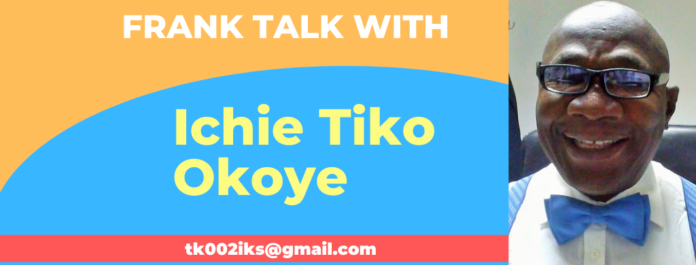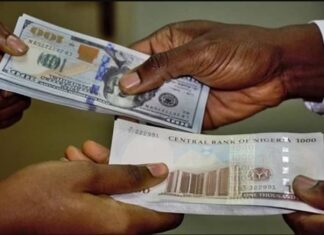Rather than enabling social media graffiti, professional news organisations in Nigeria can alternatively play a very patriotic role by ensuring that political debates and campaigns opt for depth over delivery or proof by verbosity.
By Tiko Okoye
Even at the risk of sounding like a broken record let me still yell “I told you so,” knowing that there were many lying in wait to inflict on me a most grievous comeuppance if my predictions had turned awry like those of the numerous professional political prophets.
In the introduction to my four-part serial on the then-impending presidential election titled “2023 Presidency: How the presumptive frontrunners would likely fare,” I flaunted my 100 percent score in correctly calling every presidential election since 1999 on the basis of being able to separate emotions and sentiments from realpolitik. I concluded the series by detailing why Bola Tinubu (All Progressives Congress, APC) will win the election, with Atiku Abubakar (Peoples Democratic Party, PDP) and Peter Obi (Labour Party) coming second and third in that order, even as social media buzz was pointing in the very opposite direction!
As far as I was concerned, it didn’t require a knowledge of rocket science to accept that the PDP was the odds-on favourite to win the election, given the APC’s relatively lacklustre performance, only if the party maintained its voting strongholds in the South-East and South-South as in 2015 and 2019, while plucking some key states in the North-Central and North-East. Once Obi defected to Labour, PDP chieftains ought to have immediately realised that there was fire on the mountain, particularly if the APC could manage to retain a significant proportion of its coalition of South-West/core North progressives, which if properly handled would guarantee a revolving door of presidents between the North and the South in the foreseeable future.
The presidential election has come and gone. Someone won and others lost. But as is the case with elections all over the world – more so in developing countries – the dust has refused to settle. Some critics have dubbed it “the worst election ever conducted in Nigeria.” Others have been calling for the dismissal and criminal prosecution of the chairman of the superintending electoral body, INEC.
Truth be told, elections in Nigeria have been typically shambolic. Nevertheless, it’s my well-considered opinion that sulking critics mostly angered by the fact that that their preferred candidate lost only too conveniently desire to pressurize the nation into throwing away the baby with the bath water. Only a Johnny Just Come (JJC) from an alien planet who landed on our shores on election day, would brazenly dub the February 25 presidential election the worst election ever.
The 2007 edition was so bad that the declared winner – PDP’s Umaru Yar’Adua – repudiated the electoral process that midwifed his victory, although he thereafter resisted calls to resign and make way for a fresh poll. It was an election in which many people waiting in queues to cast their votes were flabbergasted to hear ‘results’ of their polling units being declared by INEC while voting was still in progress! Nothing of the sort happened in this election.
READ ALSO: 2023 Presidency: How the presumptive frontrunners would likely fare (1)
2023 Presidency: How the presumptive frontrunners would likely fare (2)
2023 Presidency: How the presumptive frontrunners would likely fare (3)
I’ll talk very frankly. The January 15, 1966 abortive military putsch was adjudged by the rest of Nigeria to be an ‘Igbo coup’ since no high-profile Igbo politician died in a coup led by a preponderance of Igbo officers. Right or wrong (a debate for another day), the ensuing incendiary mob sentiment led to the massacre of defenceless law-abiding Igbo indigenes all over Nigeria six months later, with the worst killings occurring in Jos and Makurdi (Middle Belt) as well as Warri and Benin (Niger Delta).
As far as I was concerned, the loathing of these minority ethnic nationalities for Ndigbo will continue to manifest until hell freezes over. You can, therefore, only imagine how the announcements by INEC that the Labour Party candidate from Anambra ended up winning the polls in Delta, Edo and Plateau and only lost Benue by about 2,000 votes gave me goose pimples just to excitedly think about it! It would certainly help to pacify and exorcise the ghosts of innocent Ndigbo haunting those areas.
The icing on the cake is definitely the loss of the widely-acclaimed ‘owner of Lagos politics’ to a candidate of an opposing party. Yet, critics afflicted with chronic short-sightedness are comfortable with downplaying all the ground-breaking firsts recorded in this presidential poll and savaging it as the worst ever. ‘Worst’ must be made of sterner stuff.
Truth is that Obi surpassed all expectations – and a great deal of the positive development is chiefly attributable to Generation Z – young men and women with a zero-tolerance for tribalism. How they chose to vote constitutes proof that a ‘new Nigeria’ is indeed possible but they would have also include religion in their zero-tolerance list for future prospects to be truly of uhuru dimension.
But what galls me is that millions of Nigerians are unwilling to face the truth simply because they don’t like it. And they are increasingly being aided and abetted in this undemocratic perambulation by a vast number of media organisations and outlets that have readily transformed from news organisations to propaganda organisations. “TheNiche” is thankfully not included as its determination to balance all sides of an issue remains above board.
Make no mistake about it; it is a very tough call as news organisations must keep a watchful eye on advert and reading patronage for survival and sustainability. And as the ongoing travails of Fox TV (USA) continue to demonstrate, reporting facts as they are, aka truth, can cause a massive loss in patronage if a significant market segment like to read about what they believe in and not necessarily the truth.
Be that as it may, I posit that it’s totally illogical to say that one cannot report the truth because half of the population disagrees with it. Journalism 101 holds that the whole (not just primary) role of a legitimate news organisation is to report facts regardless of readers’ disagreement, and especially when there are concerted efforts to distort the facts. There was a time in the past when professional media outlets simply reported the news, not bias, fiction, cynicism and hate messages.
They effectively dealt with corporate interference, were immune to selective amnesia and shied away from selective coverage and didn’t sacrifice editorial integrity on the puny altar of brand protection. It has even reached the point where conventional media organisations lift provocative fake news from questionable social media sources without fact-checking, in the mistaken belief that they cannot be held accountable for defamation by just “reporting the news.”
A process is already in place for aggrieved candidates desiring to contest their electoral losses or seeking to reclaim their ‘stolen mandate.’ Both those alleging that the election lacked transparency and was flawed by INEC’s failure to upload results directly to its public result-viewing portal – IReV – and those claiming that electronic transmission of results isn’t mandatory for INEC and that political parties brought in Israeli and Russian hackers preparatory to compromising the transmitted results and creating chaos should have their day in court.
News organisations owe it as a patriotic duty both to themselves, their readers and the rest of the nation not to allow their organs to facilitate trials in the media where ‘truth’ solely depends on who’s saying what.
A sage once said that learning stops in the grave, meaning that as long as we keep open minds and are still alive, learning never ends. I recently watched Mehdi Hasan, the highly-regarded talk-show host who left Al Jazeera for MSNBC, describe what he called the Gish Galloper debating methodology. According to Hasan, the aim of the method is simply to defeat one’s opponents by burying them in a torrent of incorrect, irrelevant or idiotic arguments, given that the amount of energy needed to refute BS is an order of magnitude bigger than to produce it.
The entire strategy rests on exploiting this dubious embedded advantage. By the time the opponent begins preparing his/her rebuttal of the Gish Galloper’s first lie, the latter would’ve rattled off another dozen! The aim is to trick the audience into believing that the facts and the evidence are on their side by spewing forth a slew of examples that cannot be simultaneously fact-checked. Donald Trump has been cited by many as the most visible exponent of this debating methodology.
Rather than enabling social media graffiti, professional news organisations in Nigeria can alternatively play a very patriotic role by ensuring that political debates and campaigns opt for depth over delivery or proof by verbosity. This is not to say that news analysis – as different from news reportage – isn’t an integral part of the role of the media. But even in that kind of situation, media professionals must attempt to give credit to decisions made in the heat of the moment while enjoying the luxury of highlighting alternative actions or solutions solely based on the comfort of 20/20 hindsight (aka armchair quarterbacking).













